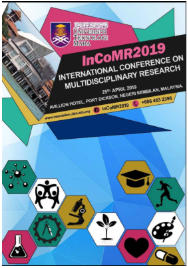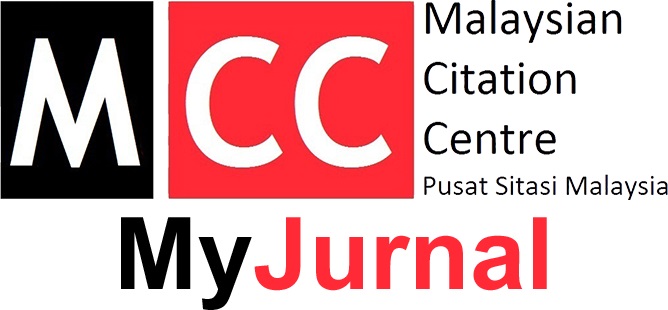CHORAL SPEAKING: PERCEPTIONS AND CHALLENGES IN AN ESL CONTEXT
Keywords:
Choral Speaking, ESL context, English LanguageAbstract
Choral Speaking is known for its’ numerous benefits in the enhancement of the English Language in the ESL context. However, it has been found that both – learners and teachers alike, perceive Choral Speaking to be arduous. Hence, when performances and competitions are organised, there is a dual resistance and anxiety from the learners and teachers. This study looked at perceptions and challenges on Choral Speaking, of learners from a public university, and that of teachers from secondary schools in Malaysia. Methodology comprised qualitative and quantitative methods, where questionnaires and interviews were administered to the participants. Hence, data comprised responses from these two instruments. The findings showed that though the majority of the learners and teachers perceive Choral Speaking as beneficial, the challenges identified, caused reluctance in participation. This paper provides recommendations to address these issues.
References
Dickinson, D.K., & Smith, M.W. (1994). Long-term effects of preschool teachers book readings on low-income children’s vocabulary and story comprehension. Reading Research Quarterly, 29, 104-122
Dowhower, S.L. (l987). Effects of repeated reading on second-grade transitional readers’ fluency and comprehension. Reading Research Quarterly, 22(4), 389–406.
Gangel, K. A. (1995). Confetti: A crazy corny collection of choral reading activities for the classroom. Bothnell, WA: Wright Group.
Hadaway, N.L., Vardell, S.M., & Young, T.A. (2001). Scaffolding oral language development Through poetry for students learning English. The Reading Teacher, 54, 798-806
Martinez, M.., Roser, N.L., & Strecker, S. (1999). “ I never thought I could be a star”. A readers’ theatre ticket to fluency. The Reading Teacher, 52, 326-334.
McCauley, J. K., & McCauley. D. S. (1992). Using choral reading to promote language learning for ESL students. Reading Teacher, 45(7), 526-33.
Menken, K. (2010). Teaching to the test: How no child left behind impacts language policy, curriculum and instruction for English Language learners. The Journal of National Association for Bilingual Education, Vol. 30 (2), 521-546. https://doi.org/10.1080/15235882.2006.10162888
Ministry of Education (2019). Choral Speaking Competition for Primary and Secondary Schools: Rules and Guidelines. [Access online www.moe.gov.my on 18 September 2019].
O’ Donnell-Allen, C., & Smagorinsky, P. (1998). Reading as mediated and mediating action: Composing meaning for literature through multimedia interpretive texts. Reading Research Quarterly, 33, 198-226
Paige, D. D. (2011). 16 minutes of “eyes-on-text” can make a difference: Whole-class choral reading as an adolescent fluency strategy. Reading Horizons, 51(1), 1-20.
Pikulski, J.J. & Chard, D.D. (2011) Fluency: Bridge between Decoding and Reading Comprehension. https://doi.org/10.1598/rt.58.6.2 9 November 2011.
Prescott-Griffin, M.L., & Witherell, N.L. (2004). Fluency in focus: Comprehension strategies for all young readers. Portsmouth, NH: Heinemann.
Rosenblatt, L. (1978). The reader, the text, the poem: The transactional theory of the literary work. Carbondale: Southern Illinois University Press.
Samuels, S.J. (1979). The method of repeated readings. The Reading Teacher, 32(4), 403–408.
Schreiber, P.A. (1980). On the acquisition of reading fluency. Journal of Reading, 12(3), 177–186.
Shanklin, N. (2009). New puzzles/next moves. Exploring poetry: How does a middle school teacher begin? Voices from the Middle, 16(3), 46-47
Trousdale, A. M., & Harris, V. J. (1993). Missing links in literary response: Group interpretation of literature. Children’s Literature in Education, 24, 195-207.
Vijayarajoo, A.R., (2019). Poetricks: A Game to Engage Malaysian Secondary School ESL Learners in Understanding Poetry. Social Management Research Journal, June 2019.
Vygotsky, L. (1962). Thought and language. Trans. E. Haufmann & G. Vakar. Cambridge, MA: The Massachusette Institute of Technology.
Vygotsky, L. (1978). Mind in society: The development of higher psychological processes Trans. M. Cole, V. John-Steiner, S. Scribner, & E. Souberman. Cambridge, MA: Harvard University Press.
Washington, E. M. (1983). Choral reading an aid to teaching novice oral interpretation students. Communication Education, 32(1), 117-21.
Downloads
Published
Issue
Section
License
Copyright (c) 2019 Journal of Academia

This work is licensed under a Creative Commons Attribution-NonCommercial-NoDerivatives 4.0 International License.












